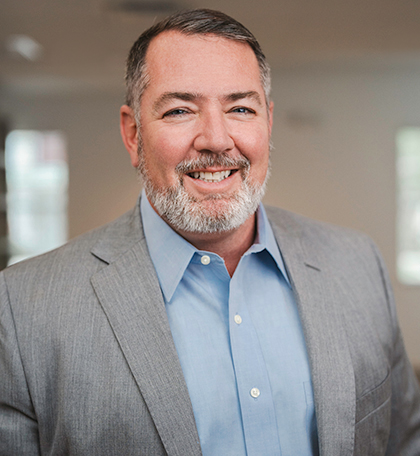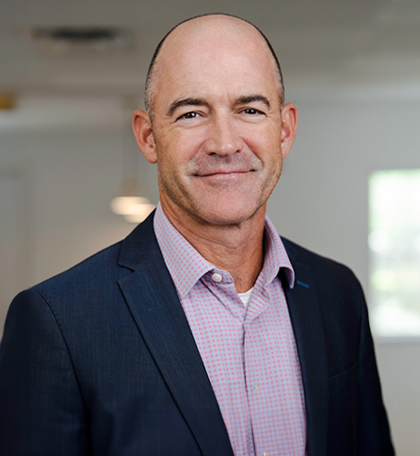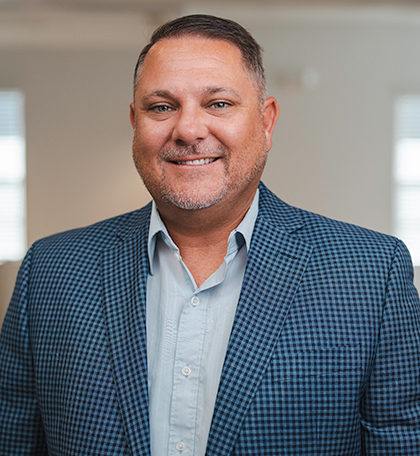TRANSCRIPT:
Welcome back to Financial Foundations, brought to you by Base Wealth Management, where we are the foundation to your financial plan. I’m your host, Dustin Taylor. I’m your co-host, Alex Wolfe, Certified Financial Planner. And I’m Kyle Howell, Financial Advisor at Base Wealth Management. Today, we’re going to talk about how to choose the right investments. So you’ve made the decision to invest. What should you invest in? Alex, what’s the most important thing when choosing the right investments? I think the most important thing is knowing what you’re investing for. So like, what’s your goal? Is this something you’re investing or saving to buy a car in a year, two years? Is it investing to send your kids to college? Is it your retirement? So first is, what’s the goal of the account or your portfolio that you’re investing for? Right. Yeah. Goals are going to determine the risk you’re going to take with those investments. So again, you know, going back, is it a car in a year? We’re going to need that money in a year. We’re not going to take a lot of risk.
If we’re saving for retirement, that’s 20% or 30 years away, then we can take a lot more risk than we can for even saving for college. How do you choose what platform or broker? There’s a variety out there. I mean, you’ve got your big ones like the Fidelity, the Schwab, the Vanguard. You’ve got some newer players like the Robinhoods. And so all of these are going to be those four that I mentioned are going to be like low cost options where they give you the online platform. They have good apps. So you could do it from your phone or an iPad or something like that. And they’re going to give you a ton of options. So you’ll get access to individual stocks, mutual funds, ETFs, you name it, you can pretty much buy at one of those. Or the more vintage approach is like going through a broker where maybe you have someone that does the trades for you or holds the accounts for you. And maybe you pay a commission. I would say that is definitely the older approach versus finding one of the new kind of online brokers and selecting those investments yourself.
So this may be obvious for a lot of our listeners out there, but for anyone who is younger or a new listener, how much do you need to invest? I’d say that depends. The income is a big part of that, right? You may not have a very high income where you can save $1,000 a month, but you might be able to put $25 a month away. Or you may have, you know, $500,000 income where you could put, you know, $10,000 away every month. I think anyone can invest in this day and age, especially now you can buy fractional shares. So if you were, you know, really wanting to buy a particular stock and it’s $1,000 a share, you could still put $50 into it and buy a fractional share. Or with the, you know, mutual funds or ETFs, you can put in $100 and buy a couple of shares of something. So I think for anyone looking to invest, you don’t have to have a lot. Should someone be buying bonds right now? The answer is potentially.
Again, it depends on what you’re saving for. If you are close to your retirement target age or your goal that you’re saving for is only maybe a few years away, going and investing bonds in something stable, generating a decent yield could be appropriate for you. And I think it could be a great time to buy bonds, especially if we’re starting to look at rate cuts, you know, we’re going to see actually some growth on bonds potentially here over the next few years as rates start to come down. Yeah, you could be locking in a higher rate now than you may be able to get in a couple of years. It might be much lower. Alex, as a financial planner, what makes a particular stock attractive? I think you really want to kind of look at what the company is, what they do, and their finances. So are they making money? Are they profitable? Are they growing revenue? There’s a lot of different information out there when you’re researching like any one particular company and what their potential growth is. We see a lot of volatility surrounding, you know, like tech names like Tesla’s one who’s experienced tremendous growth in the last couple of years, but this year has really struggled as competition is increasing, which is another thing to look at. Like are they one of the premier companies in their particular sector? Like what is their competition doing? Is there somebody else entering that area or is there a hard barrier to entry? Some people talk a lot about like duopolies, like Lowe’s and Home Depot, and they pretty much dominate that entire segment. And I’ve had conversations with clients about, you know, picking stocks and I’m not necessarily a stock picker, but, you know, I will go out and buy stocks in companies that I shop at or products that I purchase, you know, think of, you know, Coke or Pepsi or, you know, you’re shopping at Target or Walmart, you know, those types of companies that you buy what you buy.
Right. What are you seeing a lot of? Like, if you go to the mall, what stores are packed every time? Like Lululemon, probably doing a lot more business than JCPenney or, you know, you start seeing way more Teslas on the road, those kinds of trends or where you’re shopping, like the Starbucks and things like that. Yeah. Starbucks over Duncan, whatever. I’m not a coffee drinker, so it doesn’t matter to me which one you pick. I think a lot of people have heard of asset allocation, but there’s also asset location. What’s the difference between those two? Mainly, like the tax advantages, like what types of investments do you want to put in a taxable account or which investments are not tax efficient that you want to put into a tax deferred account? Yeah, I would go a little bit further into that.
You know, we look at a little bit larger portfolio that maybe we can get some real estate in. Real estate has a lot of depreciation factors, so you have a lot of tax-efficient income, that doesn’t mean that we can’t put that type of investment in your IRA that’s tax-deferred, but we would prefer to locate that in your non-retirement account, your brokerage account, your taxable account, where we can take advantage of those tax-efficient income streams. Or we may look at, you know, a particular stock that we might see some explosive growth, we may want to put that in your IRA or your Roth IRA, so when it comes time to sell that, we don’t have to worry about paying a capital gain on it in a taxable account like we would from an income standpoint on the real estate type investments. Okay, with all of the headlines and things, it can make people nervous to invest. How do you both feel about investing right before a predicted recession? That could be hard, especially when working with a client who may be more timid or more in their feelings, but as a professional or someone in the industry, it’s important to talk to them about not trying to time the market necessarily, but getting the money to work for them toward their specific goal. Again, if that money is going to be needed in the next year, you want to be in something very safe and stable.
But if it’s still investing there, that particular portfolio for something that’s 20 years away, like retirement, you know, you can try to do something like dollar cost average, where maybe you take that lump sum and every month or every quarter, you put a chunk of it into the market to try to average those returns for that time period. Time in the market versus time being in the market, right? We want to be in the market as long as possible for the right reason. If somebody comes to me and says, Hey, I’ve got $400,000 just sitting in cash is now a good opportunity for me to go into the market, I’m going to say, well, how long is it going to be before you need this $400,000? Is it next year? Is it 10 years from now? And that’s going to help determine how much should go into the market at this point in time. Again, not trying to time the market, but we want to be in the market for the most amount of time possible to help see that growth longer term. Right. And also playing into that is what is their risk tolerance? You know, someone who’s very risk averse to begin with, what you put that 400,000 into or whatever their situation is may be different than someone who’s very risk tolerant. So I assume this is the same answer, but what about if we’re in a recession currently? There’s certain types of investments that will do better during certain type times of the business cycle. One of those times is during the recession. And I think it’s important that if you’re investing in like bonds or debt, you really want quality, high credit rated bonds, so you don’t want to be in junk that may be at a risk of default and similar in the stock side of things, you want to be in quality.
Some of those could be value or dividend payers that have very stable growth and good revenue versus something that maybe is not even profitable or is at risk of even going under. Big names for sure. Big big names. You want to be in the big mature type companies. So is it too late to jump into investing in these AI stocks? I feel like this is something that we see dominating the headlines is, is the AI wave happening? Is it too soon? When to jump on? When to jump off? And I think you see this in some of the volatility we’ve experienced in those tech and AI type names. And I don’t think that it’s necessarily a bad time to buy some of those. They look like they’re trading more expensive. But how much that they’re investing for future growth in these areas actually makes them look a little bit more attractive, especially when it comes to these chip manufacturers and how many chips are going into the devices and the technology surrounding AI. It’s getting a lot of buzz and if you really believe in the company, Anytime’s a good time to buy it. I would agree with you to an extent. I would say that, you know, anytime is a good time to buy. I think when it comes to the AI, I think if you’re getting into it now, you’ve already missed a big chunk of the return that you’re going to see, although I still think there’s a lot of room for growth in that particular sector. Right. And then also what else, what are like, what are the bubble things that are maybe AI adjacent that you could be investing in? We recently talked about data centers. You know, that is something that is like a supporting cast of AI because all of that data has to be stored somewhere. So there’s other areas that maybe haven’t experienced that growth, but are somewhat in that same category or sphere of influence. And Kyle, how do you feel about socially responsible investing?
I assume that’s whenever you invest in companies that you, you know, aligns with your values or that are like environmentally friendly. How do you feel about that? Is it, is it a good idea? I don’t personally necessarily have an opinion on it. I do, you know, ask the potential clients or even, you know, existing clients if there’s anything in particular that they wouldn’t want to invest in, but I don’t have an opinion either way. Similar to Kyle, I think that a lot of the companies that are in those like ESG or socially responsible funds are actually companies you’re already investing in, but it becomes politicized. It has more of like a negative connotation for certain individuals, but when you think about it, like a lot of those are actually maybe values that you, you share, you just maybe don’t know, but I think that you should focus on what the companies are and invest for your risk tolerance and what you like. Why would someone pay to have someone manage their money for them versus doing it themselves?
So, I think it comes down to emotion and when we are in this era of time where everything is so easily accessible, the news and also the targeted ads, like if you go look at something and now all of a sudden you’re inundated with that product, it can really influence the way we think and feel, but if you have a professional doing it for you, they can really take that kind of emotion out of it and when you’re concerned about something and you make that call to them, like should I be considering pulling out of the market or investing in X company, you have that kind of barrier of someone to talk you off the ledge or maybe even agrees with you and says, yeah, I think now is a good time or whatever it might be. I think having that professional looking after your goals with you is helpful.
And on top of that, it’s just plain knowledge, not everybody has the financial acumen to understand how to put a portfolio together to begin with. You know, I have conversations with people all the time, you know, and I’ll look at their portfolio and they’ve got three different retirement date funds, you know, in their 401k plan. I’m like, this, you know, this doesn’t make sense. Like what made you choose that? I don’t know. So the, the knowledge part of it, and then I would say for the DIY people, it’s time, you know, they’re, they’re able to do it now. They have the time to do it, but there’s going to come a time where they don’t have the time to do it. They, they can’t sit in front of their computer all the time and make changes when they feel necessary. Or there’s going to come a time where they just flat out don’t want to do it anymore, and that’s when you hire somebody.
That reminds me, everything is an old saying that we had at my old firm is will, skill and time. And if you don’t have all three, you can’t really be doing it to the best of your ability or to that of a professional. Right. Like why would you split your focus? You should be focused on making the money and pay someone else to grow it for you. Yeah. And some of those DIYers might be early retirees where they don’t actually have a lot going on. They’re recently retired. They have the time. They’re somewhat skilled and they like doing it, but then maybe they get busy. So their time’s separated or they just lose interest. There’s a variety of different reasons. Whether you’re a do-it-yourselfer or not, you can visit our website at BaseWealthManagement.com for more resources, tons of videos, articles, and more podcasts like this one. You can also send us your questions. If you’d like us to address any questions or topics on our future podcasts, send those in to us at question at BaseWealthManagement.com. Let’s build a foundation together. I’m your host, Dustin Taylor. I’m your co-host, Alex Wolfe. And happy listening.




